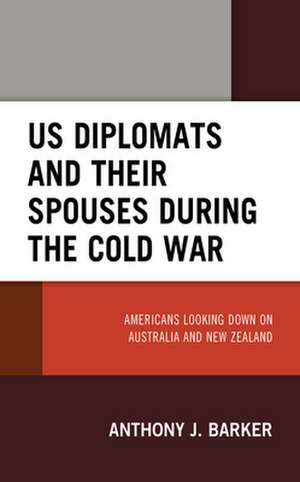Us Diplomats and Their Spouses During the Cold War: Americans Looking Down on Australia and New Zealand
Autor Anthony J. Barkeren Limba Engleză Hardback – 28 noi 2019
Preț: 791.05 lei
Preț vechi: 1083.63 lei
-27% Nou
Puncte Express: 1187
Preț estimativ în valută:
151.42€ • 164.53$ • 127.27£
151.42€ • 164.53$ • 127.27£
Carte tipărită la comandă
Livrare economică 21 aprilie-05 mai
Preluare comenzi: 021 569.72.76
Specificații
ISBN-13: 9781498591799
ISBN-10: 1498591795
Pagini: 370
Dimensiuni: 152 x 229 x 25 mm
Greutate: 0.72 kg
Editura: Rowman & Littlefield
ISBN-10: 1498591795
Pagini: 370
Dimensiuni: 152 x 229 x 25 mm
Greutate: 0.72 kg
Editura: Rowman & Littlefield
Notă biografică
By Anthony J. Barker
Descriere
This study examines US diplomatic relations with Australia and New Zealand during the Cold War. The author emphasizes the role of lower-ranking diplomats in policy formation and examines the impact of recruitment and deployment practices of the diplomatic corps, as well as the influence of diplomats' families.
